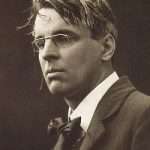Something more
The crowds were big this Christmas; the aggregate attendances exceeding the total number of parishioners in our scattered group of six country churches: a gross total of 386, less nineteen for those who attended more than once, gives a net total of 367, and we have only 353 members of our parish. Our crowds were tiny compared to those in our neighbouring Catholic churches; their attendances would have looked respectable in sports venues.
Whatever has happened, there is still in Ireland a deep attachment to the spiritual, to values other than balance sheets and the bottom line; to a society determined by considerations other than the market.
Neo-liberalism, with its measurement of everything in terms of cash and utility has been rejected. The notion that everything must have obvious financial or practical merit finds little sympathy in a community battered by the fundamental naivete of a political philosophy that failed to appreciate that you cannot build a community on human greed.
There is a cynicism towards the politicians across the divide who bought into the philosophy that something could only have worth if it could be bought or sold; that it only mattered if it could be counted or measured. Happiness consisted in accumulation. The collapse of the international financial markets compelled people to think about happiness that comes from sources other than a large bank balance.
Bizarrely, it was reality television, that broadcasting format where human emotion and experience becomes a saleable commodity, that pointed to something deep within human nature. The millions who watch it, do so because there is a fascination with ordinary human beings; the subjects are not rich or famous or powerful, they are interesting for their own sake.
The obsession with material possessions, with its concerns about the price of one’s house and the year of one’s car and the label of one’s clothes, so alienated us from ourselves that from an unlikely quarter has came a reminder that people in themselves are of unmeasurable worth.
A century ago, WB Yeats expressed a sense that people needed more than just the material, that, if people were to soar like eagles, beauty in all its forms was important, that life was more than money. Writing in December 1912:
TO A WEALTHY MAN WHO PROMISED A SECOND SUBSCRIPTION TO THE DUBLIN MUNICIPAL GALLERY IF IT WERE PROVED THE PEOPLE WANTED PICTURES
You gave but will not give again
Until enough of Paudeen’s pence
By Biddy’s halfpennies have lain
To be “some sort of evidence,”
Before you’ll put your guineas down,
That things it were a pride to give
Are what the blind and ignorant town
Imagines best to make it thrive.
What cared Duke Ercole, that bid
His mummers to the market place,
What th’ onion-sellers thought or did
So that his Plautus set the pace
For the Italian comedies?
And Guidobaldo, when he made
That grammar school of courtesies
Where wit and beauty learned their trade
Upon Urbino’s windy hill,
Had sent no runners to and fro
That he might learn the shepherds’ will.
And when they drove out Cosimo,
Indifferent how the rancour ran,
He gave the hours they had set free
To Michelozzo’s latest plan
For the San Marco Library,
Whence turbulent Italy should draw
Delight in Art whose end is peace,
In logic and in natural law
By sucking at the dugs of Greece.Your open hand but shows our loss,
For he knew better how to live.
Let Paudeens play at pitch and toss,
Look up in the sun’s eye and give
What the exultant heart calls good
That some new day may breed the best
Because you gave, not what they would
But the right twigs for an eagle’s nest!
Yeats, hardly orthodox in his religious views, would have delighted in the thought of Irish people turning against the idolatry of the Celtic Tiger years. Yeats, who transformed the prosaic reality of Dublin in 1916 into a poetic heroism, might have found a strange beauty in those who believe there is something more.



Comments
Something more — No Comments
HTML tags allowed in your comment: <a href="" title=""> <abbr title=""> <acronym title=""> <b> <blockquote cite=""> <cite> <code> <del datetime=""> <em> <i> <q cite=""> <s> <strike> <strong>